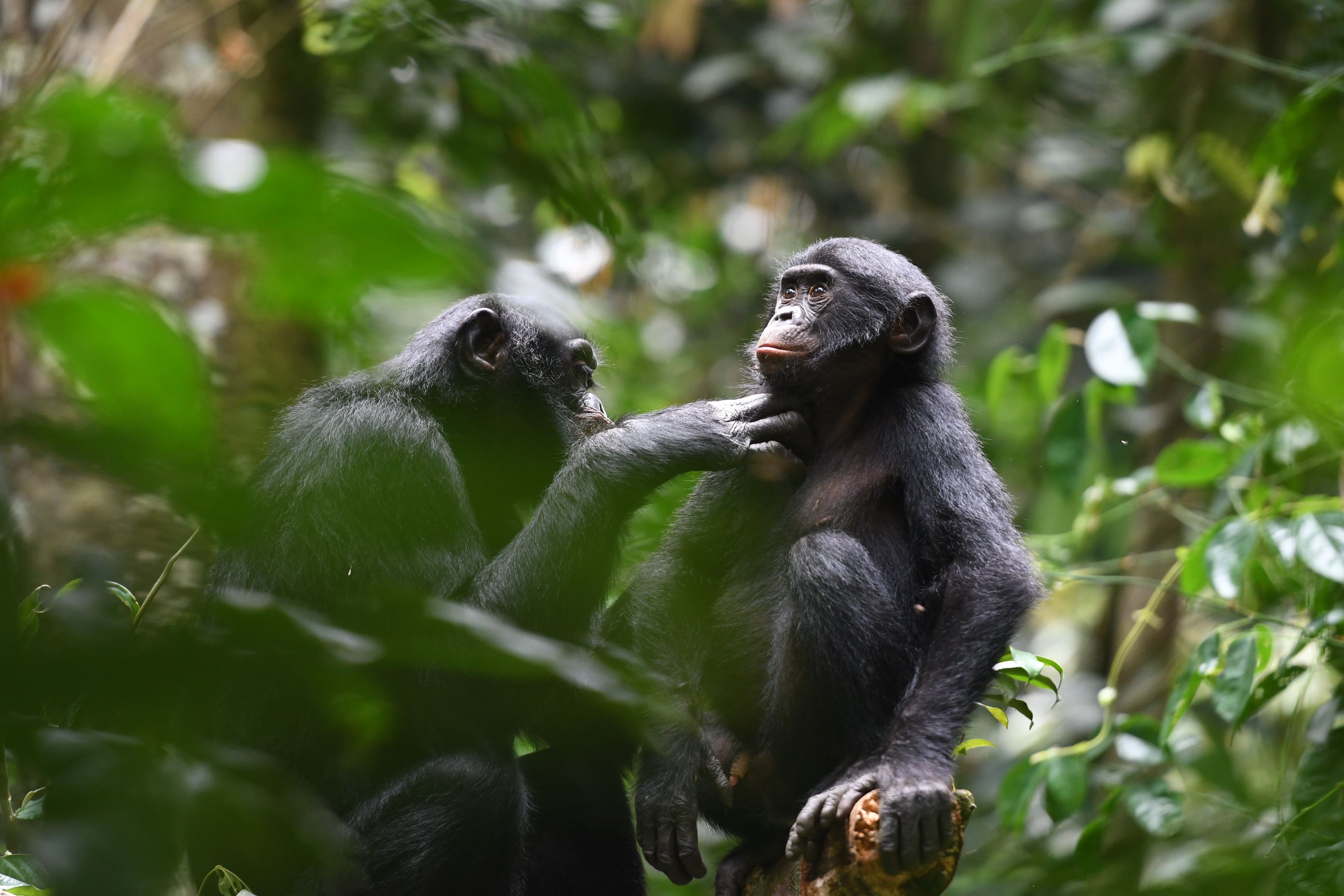Bonobos make friends outside their group and help each other like humans – study
The findings challenge the view that only humans are capable of forming strategic alliances, researchers have said.

Your support helps us to tell the story
From reproductive rights to climate change to Big Tech, The Independent is on the ground when the story is developing. Whether it's investigating the financials of Elon Musk's pro-Trump PAC or producing our latest documentary, 'The A Word', which shines a light on the American women fighting for reproductive rights, we know how important it is to parse out the facts from the messaging.
At such a critical moment in US history, we need reporters on the ground. Your donation allows us to keep sending journalists to speak to both sides of the story.
The Independent is trusted by Americans across the entire political spectrum. And unlike many other quality news outlets, we choose not to lock Americans out of our reporting and analysis with paywalls. We believe quality journalism should be available to everyone, paid for by those who can afford it.
Your support makes all the difference.Wild bonobos make friends outside their group and help each other out, challenging the view that only humans are capable of forming strategic alliances, scientists have said.
Researchers have found this endangered great ape species has “remarkable levels of tolerance between members of different groups”, often travelling, feeding and resting together.
However, these pro-social primates do not interact randomly, instead selecting a few individuals to form strong bonds and share food and other resources with, much like people in human societies.
This is in stark contrast to chimpanzees – another close relative of humans – where relationships between different groups are often hostile and lethal aggression is not uncommon, the team said.
Bonobos show us that the ability to maintain peaceful between-group relationships, while extending acts of pro-sociality and cooperation to out-group members, is not uniquely human
Martin Surbeck, a professor at Harvard University’s department of human evolutionary biology and senior author on the study, said: “They (bonobos) preferentially interact with specific members of other groups who are more likely to return the favour, resulting in strong ties between pro-social individuals.
“Such connections are also key aspects of the co-operation seen in human societies.”
The scientists believe their findings, published in the journal Science, can help shed light on how complex behaviours like co-operation and conflict evolved in humans.
Prof Surbeck added: “Bonobos show us that the ability to maintain peaceful between-group relationships, while extending acts of pro-sociality and co-operation to out-group members, is not uniquely human.”
Research on primate behaviour has been mainly focused on chimpanzees as they are easier to study compared to bonobos, which live in remote parts of the Democratic Republic of the Congo.
As chimpanzees are more aggressive, previous models of human evolution have often assumed that group hostility and violence are innate to human nature, the scientists said.
For the study, Prof Surbeck and his team worked with the local Mongandu population in Kokolopori, a community of villages in Djolu territory of the Tshuapa province, to set up the Kokolopori Bonobo Reserve.
Over the course of two years, they observed two small groups of bonobos – 31 adults in total – that spent about 20% of their time together.
Analysing 95 encounters in total, the researchers found individuals from different groups engaged in friendly and co-operative interactions.
Pairs of bonobos from different groups were found to groom each other, share food and formed coalitions.
The primates also engaged in aggressive interactions but these disputes were not lethal.
Dr Liran Samuni, a researcher at the German Primate Center in Gottingen, Germany, and the lead author of this study, said: “Tracking and observing multiple groups of bonobos in Kokolopori, we’re struck by the remarkable levels of tolerance between members of different groups.
“This tolerance paves the way for pro-social co-operative behaviours such as forming alliances and sharing food across groups, a stark contrast to what we see in chimpanzees.”
According to the researchers, their work on bonobos “show that constant warfare between neighbouring groups is not necessarily a human legacy and does not seem evolutionarily inevitable”.
They wrote: “Our findings show that co-operation between unrelated individuals across groups without immediate payoff is not exclusive to humans and suggest that such co-operation can emerge in the absence of social norms or strong cultural dispositions.”